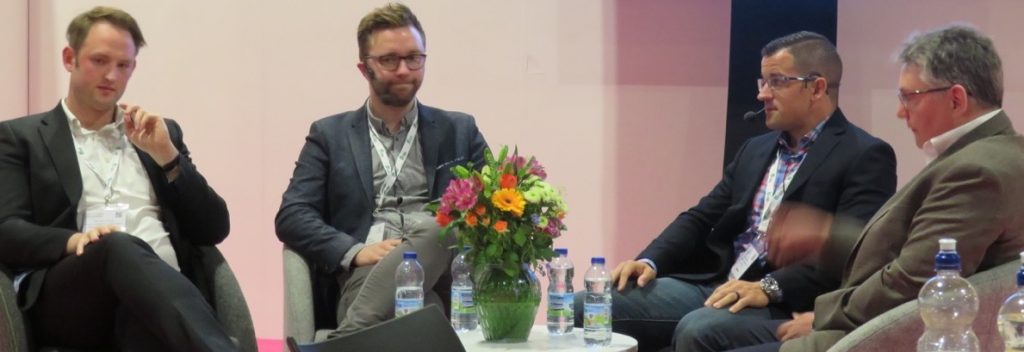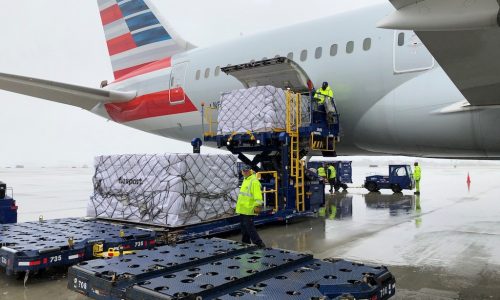
A Transport intelligence (Ti) survey has found that some shippers are already booking 10.2% of their total volumes online, a figure that is expected to reach 18.7% in five years time.
The survey result was cited during a conference session at the UK’s Multimodal event in Birmingham where the majority of the audience voted that digital platforms will have the greatest impact on global supply chains over the next 12 months,
The Internet of Things (IoT) came a close second at the end of the session, entitled: What is the biggest disrupter in the logistics industry today?
In third and fourth place in the small sample audience vote were digital start-ups and future mobility which was sponsored by Transport Intelligence (Ti).
Michael Clover (pictured top left), head of commercial development at Ti, said that the digital marketplace was “transformative” in the way that that it allowed shippers to buy and manage their shipments, arguing that digital platforms are “all around us in the here and now” and already halfway through their journey, compared with the other three categories.
Clover contended that digital booking platforms would “create more competition in the marketplace” and change the way that freight forwarders do business, focusing on where they can make their margin, most likely through value added services.
He estimated that there are 20 freight platforms available at the moment, and that they will “shake up the industry,” adding: “It is unclear where the pieces will fall.”
Clover then quoted a Ti shipper survey which found that respondents were already booking 10.2% of the volumes online, rising to 18.7% in five years.
Asked after the event if that predicted growth was a little on the low side, he said: “Don’t forget, it was zero five years ago.”
Ken Lyon (pictured top right), managing director of Virtual Partners and on the advisory board of Ti, said that the data acquired by IoT devices would be on “an unimaginable scale”, and warned that the infrastructure of many companies was not designed to cope with “sheer volume of data” produced by IoT connectivity.
Countries would have to decide whether to install “fat digital pipelines” to handle the growing data volumes, with some nations such as China and Russia prepared to do so while the UK was “in the Middle Ages”.
Lyon, who wanted internet access to be “open, fast and fair” added that some states wanted to limit access to the internet by its citizens.

